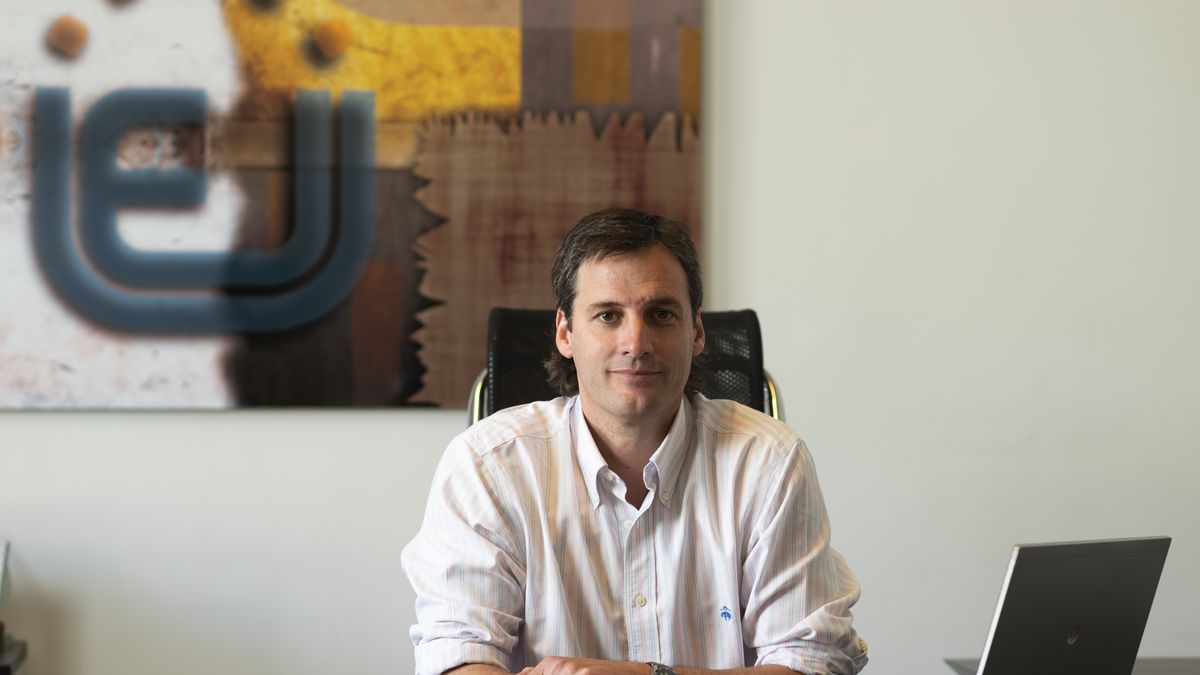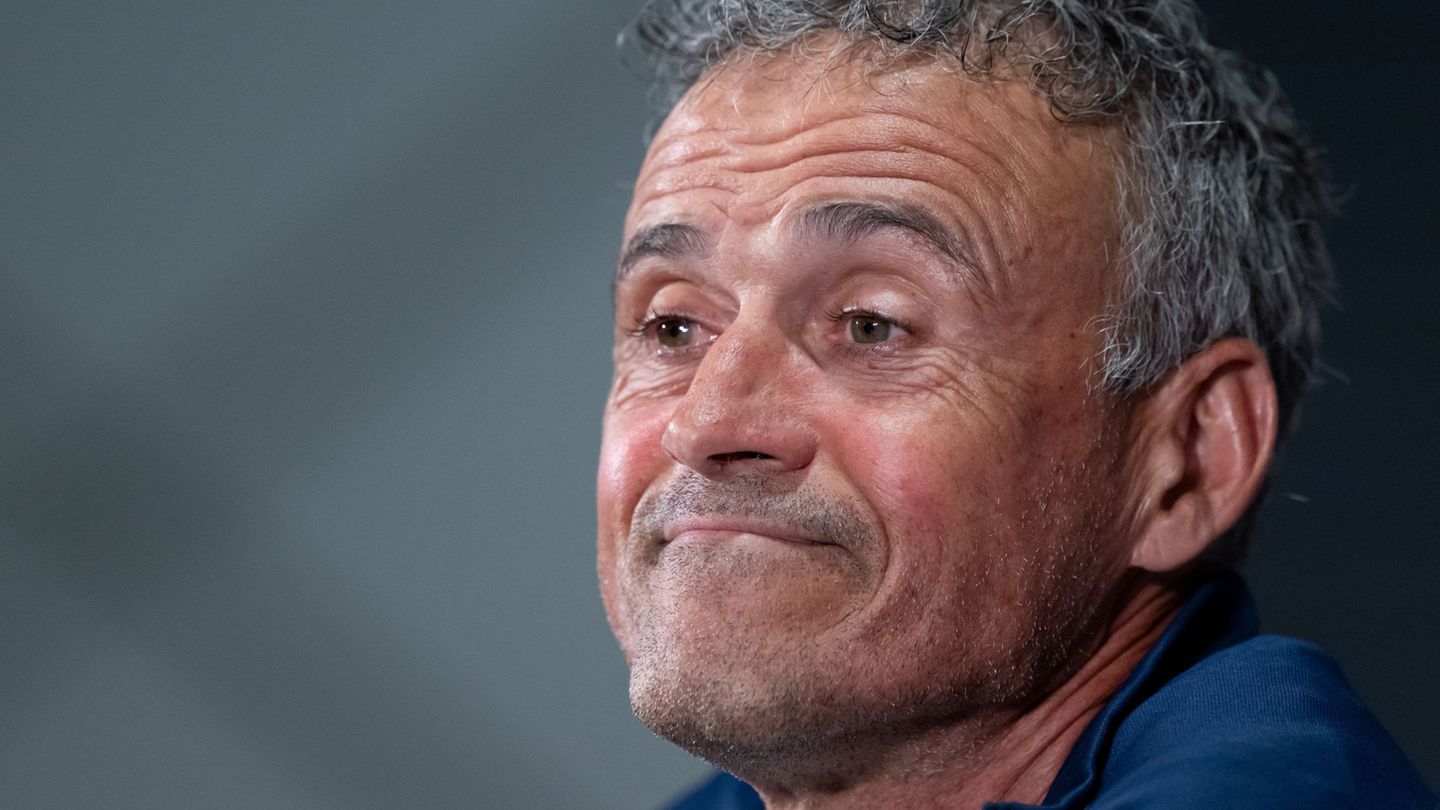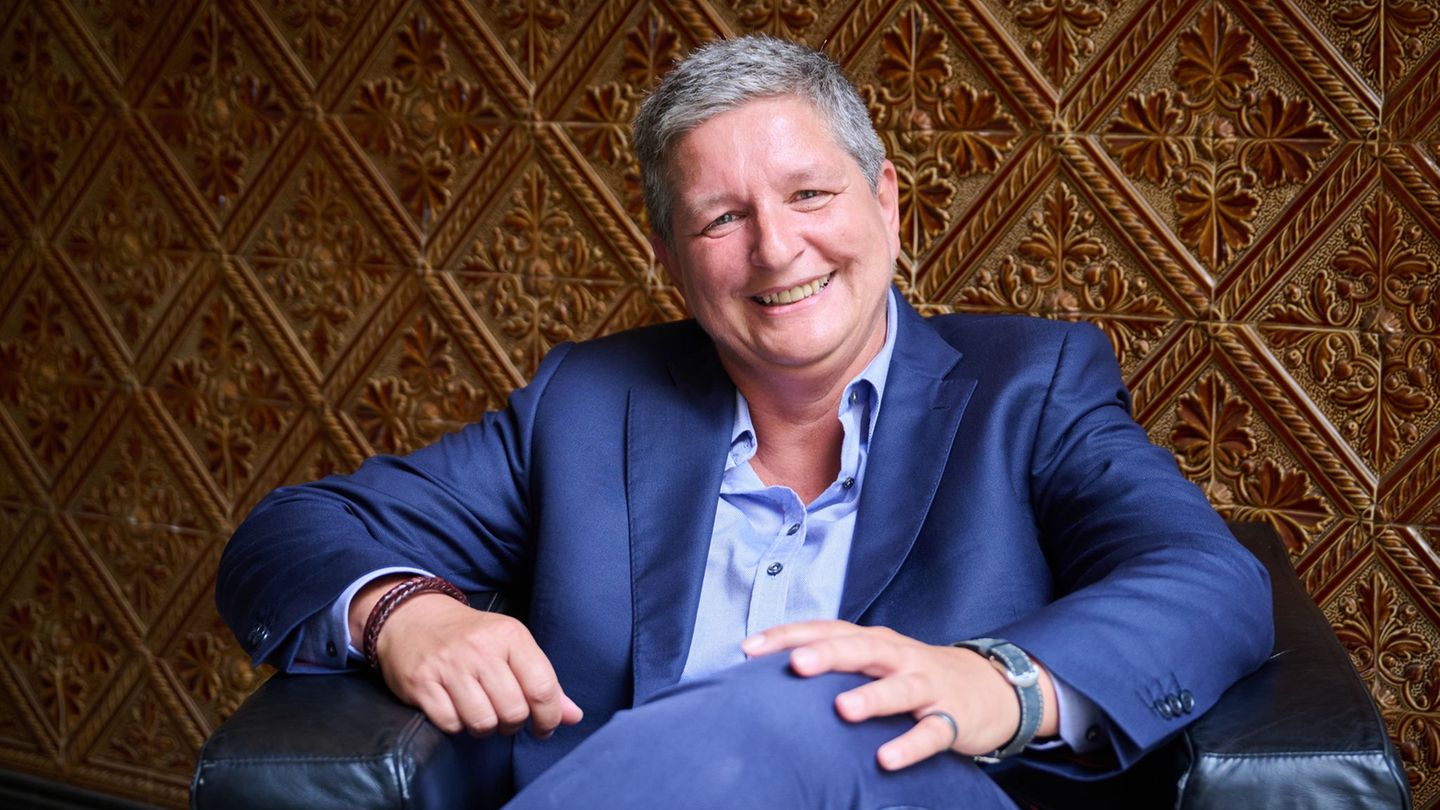After integrating the last three boards of directors, Facundo Marquez came last October to the presidency of the Union of Exporters of Uruguay (UEU), despite the fact that his environment recommended that he not accept the challenge so as not to neglect his caviar export company and for being “too young”. He was surprised when he accepted the invitation of the PIT-CNT to participate in the act of May 1st. He considers it part of his work and is committed to a dialogue between businessmen and workers to build Uruguay for the next four decades, he explained to scope.com.
-Did you come to the position to give a different imprint to the management? How do you read, in this framework, your attendance at the event organized by the PIT-CNT on May 1?
-Yes, I am trying to give another profile to the institution. There is a history of parallel paths between the business sector and the worker sector, many social actors who are linked in one way or another to exports and the first thing I did was ask them to call them because it seemed important to me to start generating those dialogue bridges. . This is an institution that is above all non-partisan, it also does not participate in any Wages Councilwhich is an advantage since it is not in moments of confrontation, but is always there as an intermediary and as a conflict solver.
We still come with a continuity. In fact, the one who was president continues as vice president and although there were not many changes in the board of directors, there is a continuity of the issues because the vast majority of the policies that we work on continue.
– Is there a need for more dialogue between the parties then?
–Yes, of course. I have not the slightest doubt. But it’s not what I think, it’s what I see when I meet someone. It is the first time in 50 years that the PIT-CNT went to the Union of Exporters. Representatives of the broad front for the first time. It is the first time that a president of this union goes to May 1. I don’t know if it’s a generational issue, but I’m clear that We are going to build the country together. I don’t see any other way.
-Are the exchange rate delay and competitiveness a problem? How do you deal with this situation?
– When you talk about competitiveness, what one always imagines is the dollar price, but for us when we talk about competitiveness we talk about many issues. What happens is that today the dollar is so, so, so misaligned that any adjustment that can be made in the company has an impact on competitiveness. But it goes much further, this has a lot to do with the long-term reforms that Uruguay has to do, that are always talked about and never done.
Today the issue of 6 hours of work has been mentioned, I am willing to talk about that issue but it goes beyond the reduction of the working day labor . That has to be tied to another variable such as the sector you are in, whether or not it is a small or medium-sized company, etc.
– What is your perspective on the international insertion of the country? Is it necessary to look beyond the region and bet, for example, on free trade agreements with other parts of the world?
– When they tell you more and better mercosur, I sign it for you, but what does that mean? I’m trying to look at the next 30 years. What is more and better Mercosur? Bolivia, Venezuela?It is perfect if they want to make an agreement with Venezuela, but 30 years from now it will not save us. The future is in AsiaIt’s in Middle East and there we are hardly looking. It’s not that we don’t do anything, but that others begin to move forward and set up those agreements and you’re left behind.
There is a lot of homework that Uruguay has to do because in order to adhere to a treaty like the transpacificYou have to meet a number of requirements because if you don’t, they won’t accept you. So what are we going to wait for, for them to accept us to start working like this? It is the most important treaty that we have in view and that in many things depends on us. What is being done? Nothing. This is going to anger many, but it is the truth.
– Another issue related to this is what Brazil has suggested in terms of promoting trade in local currencies. What vision do you have of that?
– It is very difficult. As much as you have a local currency payment systemthe problem we have today with Argentina is that we need import permits.
Any product that you want to export to Argentina requires authorization, which is totally discretionary, there is nothing institutional. The skinny man who is sitting in the Secretary of Commerce says this yes, this one no. That can take you a month, two months, three. The local currency system does not solve this for you.
Second, once that is approved, you get a term to collect, which is generally 180 days. Only then would the payment system act. What happens is that you are talking today with a government that is already leaving, so trying to reach an agreement with them now is not easy. The truth is that has no legitimacy.
– How is the exchange situation affecting Argentina?
– I think that this is a problem that is not short-term, we are going to have it for many years and it is independent of whether Argentina dollarizes. Argentina will continue to be a cheaper country for many yearsWhat we have to think about is how we can take advantage of it.
We are already seeing it in many sectors. For example, in the software industry There are people who live in Argentina and work for that sector in Uruguay. What services can we offer to use that exchange difference and that it works for both of us? You have to think that this is going to be like this for many years and we are not going to solve it with transitory measures.
– What is the challenge of Uruguay as a country of services and the reality of the workers?
– I don’t know if I would call it a country of services, today the export of services is 25% of Uruguay’s exports, but it has been growing. We have to agree on which country we want from now to the next 40 years. Here they discuss two years, three years or towards the next elections. It is very difficult to get the political system, the employers, the workers to agree in such a long term. I don’t know what the working sector and the Broad Front of the Trans-Pacific Agreement think, is it normal that we don’t know? I am convinced that it points to large markets, to the great growth of consumption and we are a country that produces a number of services. And we don’t know what they think.
First I want to know where we are going. From there let’s discuss the rest of the stuff. I do not conceive of a country’s growth without an improvement in working conditions. What we have to discuss beyond the salary, are the general working conditions. It exasperates me that there is not so much talk about the general conditions and what we want as a country. It is not just leaving the political sector discussing this, but also involving employers and workers.
Who is Facundo Marquez?
- He’s 46.
- It is a producer of sturgeons, exporter of caviar from Uruguay to more than 35 countries in the world.
- directs Polanco Caviar, a small and medium-sized company in the center of the country, tacuarembó.
- He participated in three boards of directors until in October of last year he was elected president of the Union of Exporters of Uruguay.
Source: Ambito




